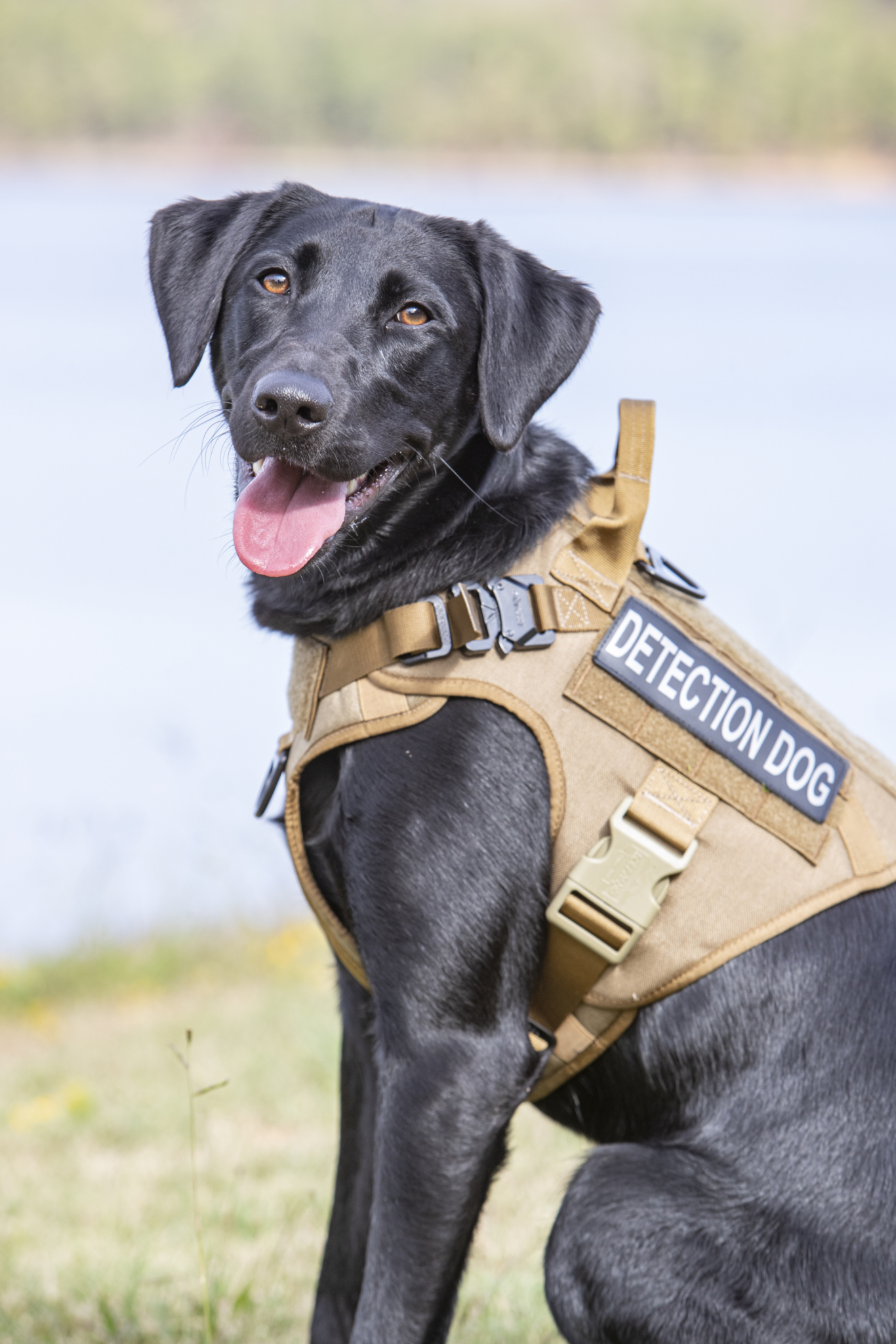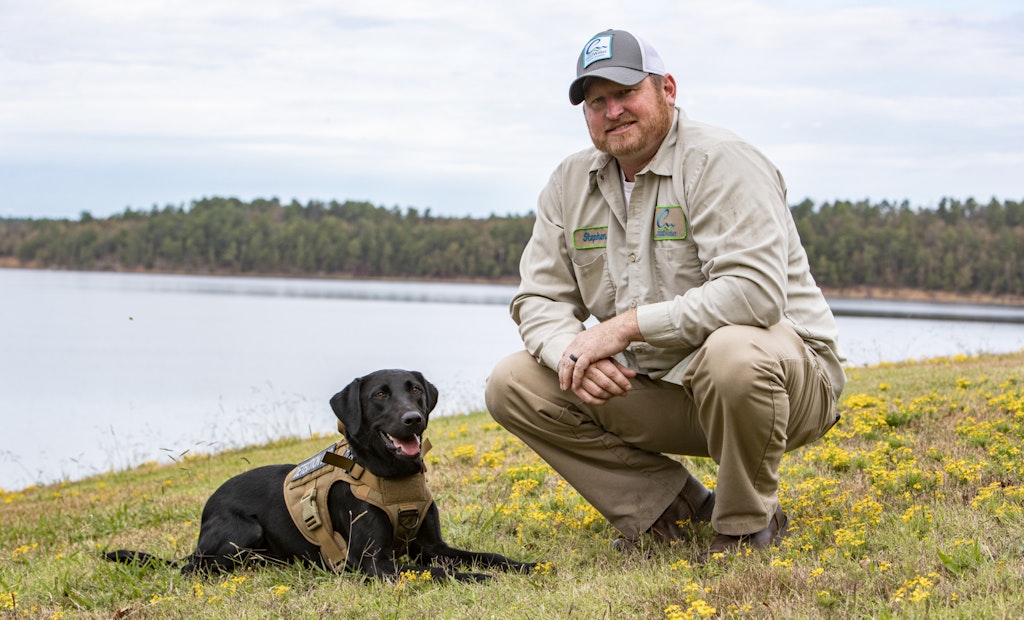After reading about Great Britain’s water leak sniffer dog in 2018, perhaps some of you were wondering when we’d see a canine water worker in North America. Well, the time has come, and officials at Central Arkansas Water (CAW) in Little Rock say she’s doing a phenomenal job so far.
A black lab mix named Vessel is helping the utility find surfacing and nonsurfacing leaks within its distribution system. Leak-detection canines are primarily employed to find leaks in oil pipelines, but Vessel was specially trained to find water leaks by alerting to chlorine gas, according to Doug Shackelford, director of public affairs and communications at CAW.
“Vessel spent several months training here locally,” he says. “The training involved introducing her to the scent of chlorine, which is what she triggers on. When the chlorine degasses from the treated water, she picks up that scent. When she works, she’s not looking for water. She is actually sniffing for gas.”
The utility’s CEO, Tad Bohannon, got the idea to try a leak-detection dog after traveling in Great Britain and hearing about United Utilities’ dog, Snipe. “He learned more about that dog and the concept, and brought it here to central Arkansas,” says Shackelford. “Tad knew that she would be a good fit for us in our constant effort to find leaks in our system.”

Vessel is a happy dog now that she's using her intelligence and hard work ethic for the good of her community.
Vessel is a rescue dog, and was part of the Arkansas Paws in Prison — an organization that rehabilitates shelter dogs and gives them a second chance at life via a training program. There, she was taught basic commands such as “sit” and “stay,” according to Shackelford. “She was identified for advanced training to possibly become a service dog because of her drive. After the Paws program, we were connected with her through her trainers. They recognized that she was a smart, energetic dog and believed she would handle this type of work well.”
Does it actually work?
That’s all fine and good, but does this actually work? The answer from CAW is a resounding “yes.” In a very short time, she’s already found several leaks in CAW’s water system, says Shackelford.
“A recent example was a leak that we knew existed and sent a crew to repair,” he says. “When we took Vessel to the site, she actually triggered on another location near the spot where we thought the leak was. Our crew dug Vessel’s mark instead of the expected mark, and actually found a substantial leak with only one dig.”
CAW has had numerous requests for more information from other utilities within just a few days of Vessel’s introduction to the public. The utility has heard from both public and private companies, and Shackelford suspects leak-detection canines will become more of an industry standard in the coming years. In fact, he recommends other utilities supplement technology with a similar program.
“Technology is amazing, and we have utilized some really unique approaches to find leaks in our system, including satellite detection,” he says. “However, as successful as some of the technological programs are, we are blown away by how good Vessel is at finding leaks. Plus, a dog like Vessel puts a positive face on the work utilities are doing everyday to provide safe, dependable drinking water to their communities.”
To follow Vessel’s progress, visit Facebook, Twitter and Instagram using the handle @CAWdetectivedog. Training partners Carrie Kessler and Tracy Owen with Camp Carrie Dogs Amust Training developed leak-detection training specifically for Vessel.






